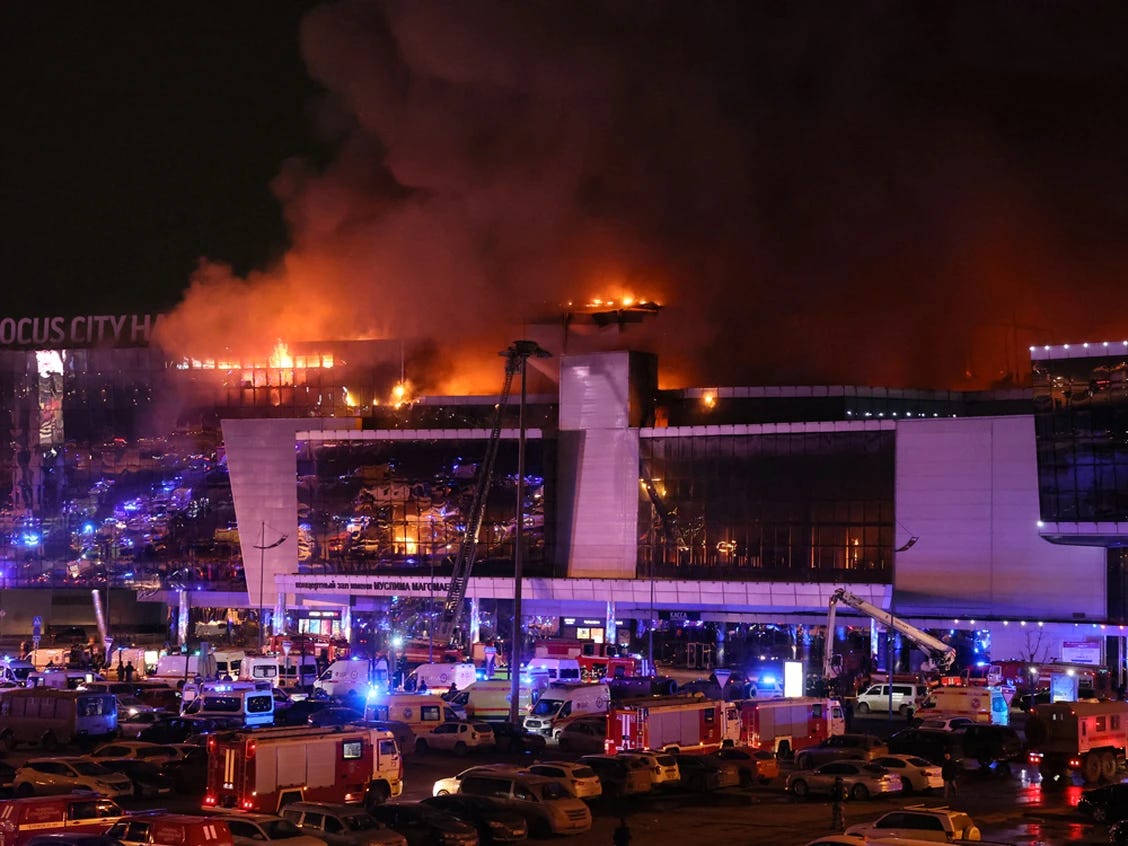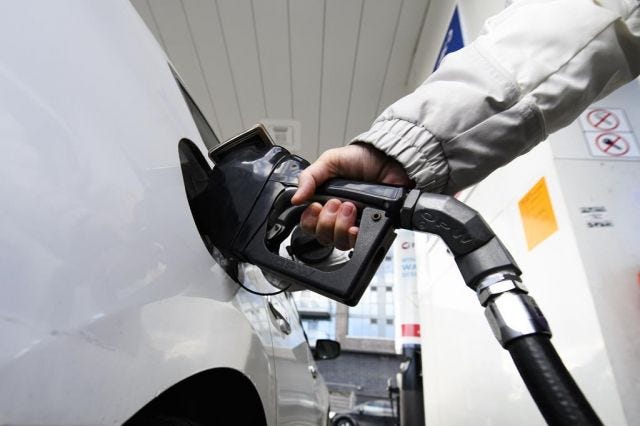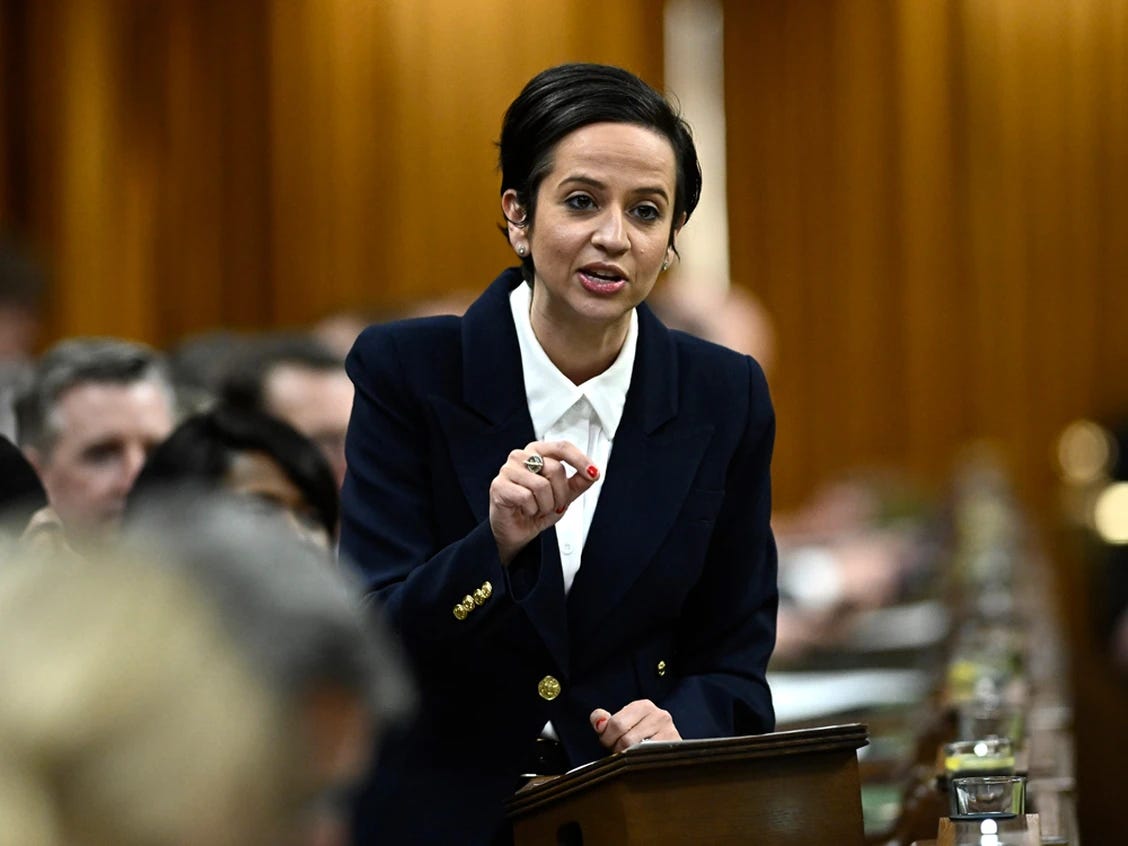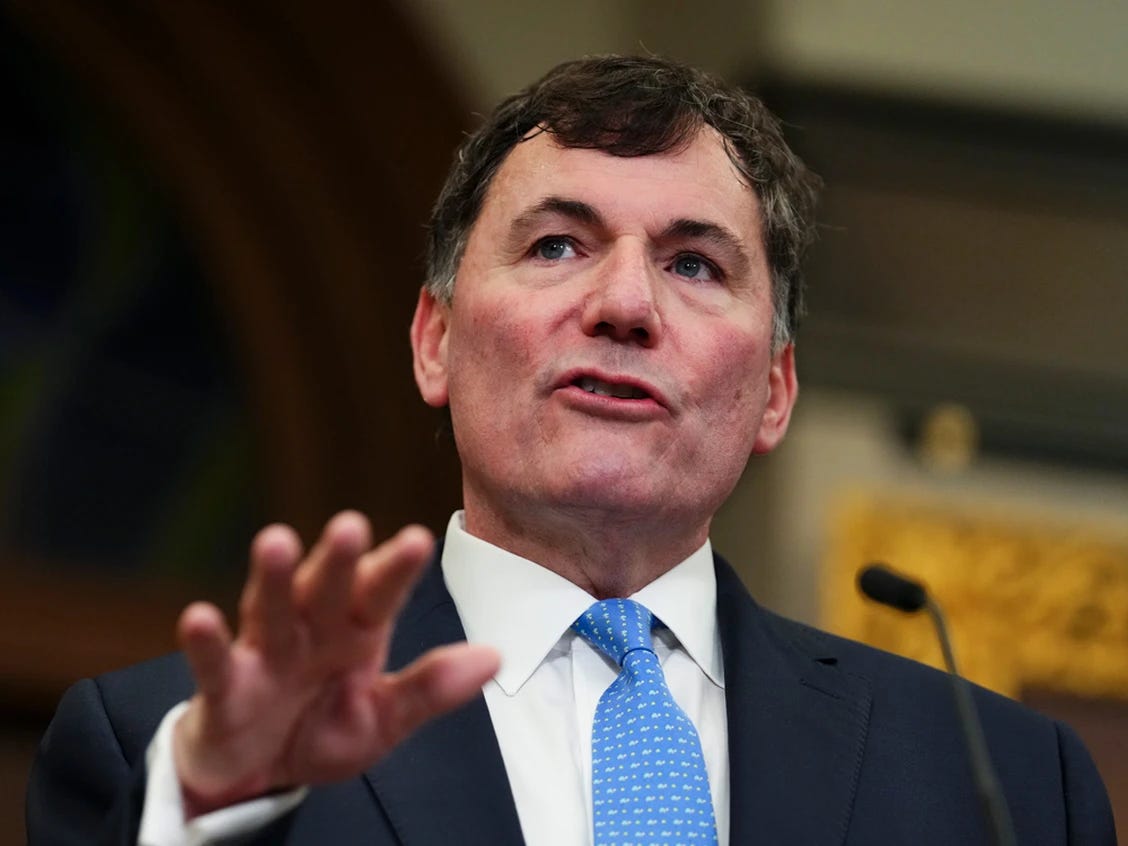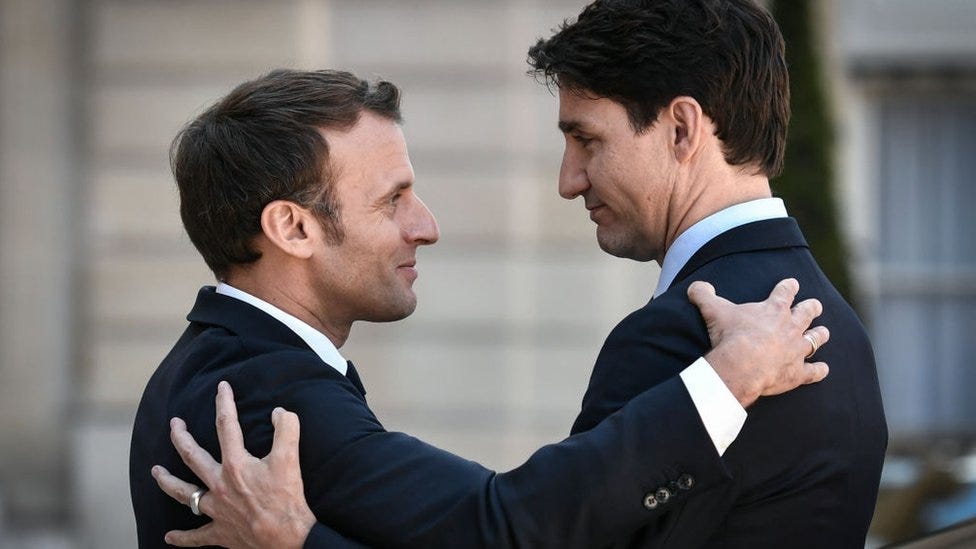Putin Condemns Moscow Concert Hall Attack: 11 Arrested in Terror Probe
Russian President Vladimir Putin announced that authorities have arrested 11 individuals in connection with the attack on a suburban Moscow concert hall, where at least 133 people were killed. Putin labeled the incident as a "bloody, barbaric terrorist act" and stated that all four main suspects had been apprehended, suggesting they were attempting to flee to Ukraine. However, Ukraine denied any involvement. The Islamic State group's Afghanistan branch claimed responsibility for the attack, which occurred shortly after Putin's electoral victory and amid Russia's ongoing conflict in Ukraine. The attack involved gunmen shooting civilians and throwing explosive devices, leading to a massive fire and the collapse of the venue's roof. The United Nations condemned the attack, and messages of support poured in from around the world. This incident echoes previous terrorist activities by ISIS in Russia and elsewhere.
Alberta Gas Prices Set to Rise: Fuel Tax Reinstatement Announced
Starting April 1, gas prices in Alberta are set to rise as the provincial government reinstates its fuel tax, increasing it by four cents to 13 cents per litre for both gas and diesel. Finance Minister Nate Horner explains that the tax fluctuates based on oil prices, with adjustments made quarterly according to the average price per barrel of West Texas Intermediate oil. Despite the increase, Horner reassures Albertans that they will still enjoy relatively low fuel prices compared to other provinces. However, if oil prices rise to US$80 a barrel or higher, the tax rate will drop back down.
Political Drama in Canadian Parliament: Conservatives' Bid to Topple Government Over Carbon Tax Fails
During a debate in the House of Commons, Conservative Leader Pierre Poilievre introduced a motion of non-confidence, aiming to trigger a federal election in protest against the planned increase in the carbon tax by the minority Liberal government. Poilievre argued against the tax hike, highlighting its impact on the cost of living for Canadians. However, the motion was ultimately rejected due to the supply-and-confidence agreement between the Liberals and the NDP. NDP MP Charlie Angus ridiculed Poilievre's threat of toppling the government over the carbon tax, noting previous instances where such promises were not fulfilled. The debate saw little discussion on environmental policies, with more focus on political maneuvers and party dynamics.
Liberal Government Proposes Election Act Updates in Partnership with NDP
The Liberal government introduces legislation to amend the federal Elections Act, a move aligned with its pact with the NDP. The proposed changes aim to enhance voter participation and safeguard against foreign interference. Key provisions include adding two more days of advance voting, making campus voting permanent, and exploring the possibility of voting at any polling station within one's riding. Additionally, the bill addresses issues related to new technologies like artificial intelligence and cryptocurrency, while also introducing measures to improve privacy protections for federal political parties. The collaboration between the Liberals and NDP reflects their shared priorities, as outlined in their confidence-and-supply agreement.
French Senate Rejects EU-Canada Trade Deal Amid Farmer Concerns
French President Emmanuel Macron expresses regret over the French Senate's rejection of legislation to ratify the EU-Canada trade deal, known as CETA, which farmers fear will bring unfair competition. While the vote doesn't guarantee final rejection, Macron defends CETA, citing benefits for the French farming industry. However, farmers and unions argue that the agreement lacks guarantees and could negatively impact sectors such as livestock and beef. Despite increased French exports to Canada since 2017, including cheese and wine, some sectors like wine and spirits express disappointment over the Senate's decision, fearing market losses.
584 New Affordable Homes Announced Across B.C.'s Interior Region
B.C.'s Minister of Housing, Ravi Kahlon, announces plans for 584 new affordable rental homes across the Interior region, addressing the housing crisis. Projects include housing for families, seniors, and individuals with disabilities in various communities such as Okanagan Falls, Princeton, Kelowna, and Salmon Arm. The initiative aims to tackle the challenges posed by global inflation, labor shortages, and rising interest rates. The units will be rentals, offered at rates equal to or lower than average private-market rents. The announcement signifies a collaborative effort between the government and local non-profit partners to provide much-needed housing solutions.
New Report Warns of Normalized Threats Against Canadian Politicians and Risks of Foreign Interference
A newly released intelligence report highlights the normalization of threats against politicians in Canada, fueled by extremist narratives and misinformation. The report, prepared by a federal task force aiming to safeguard elections, emphasizes the proliferation of conspiracy theories and growing political polarization. While threats against politicians have remained relatively stable since September 2021, ideologically motivated violent extremism poses a significant risk to Canada's democratic fabric. The report also addresses concerns regarding foreign interference in Canadian elections, with efforts to monitor, control, or co-opt diaspora communities. An ongoing commission of inquiry led by Quebec judge Marie-Josée Hogue is investigating allegations of foreign interference in past elections, with a focus on China, India, Russia, and others.




